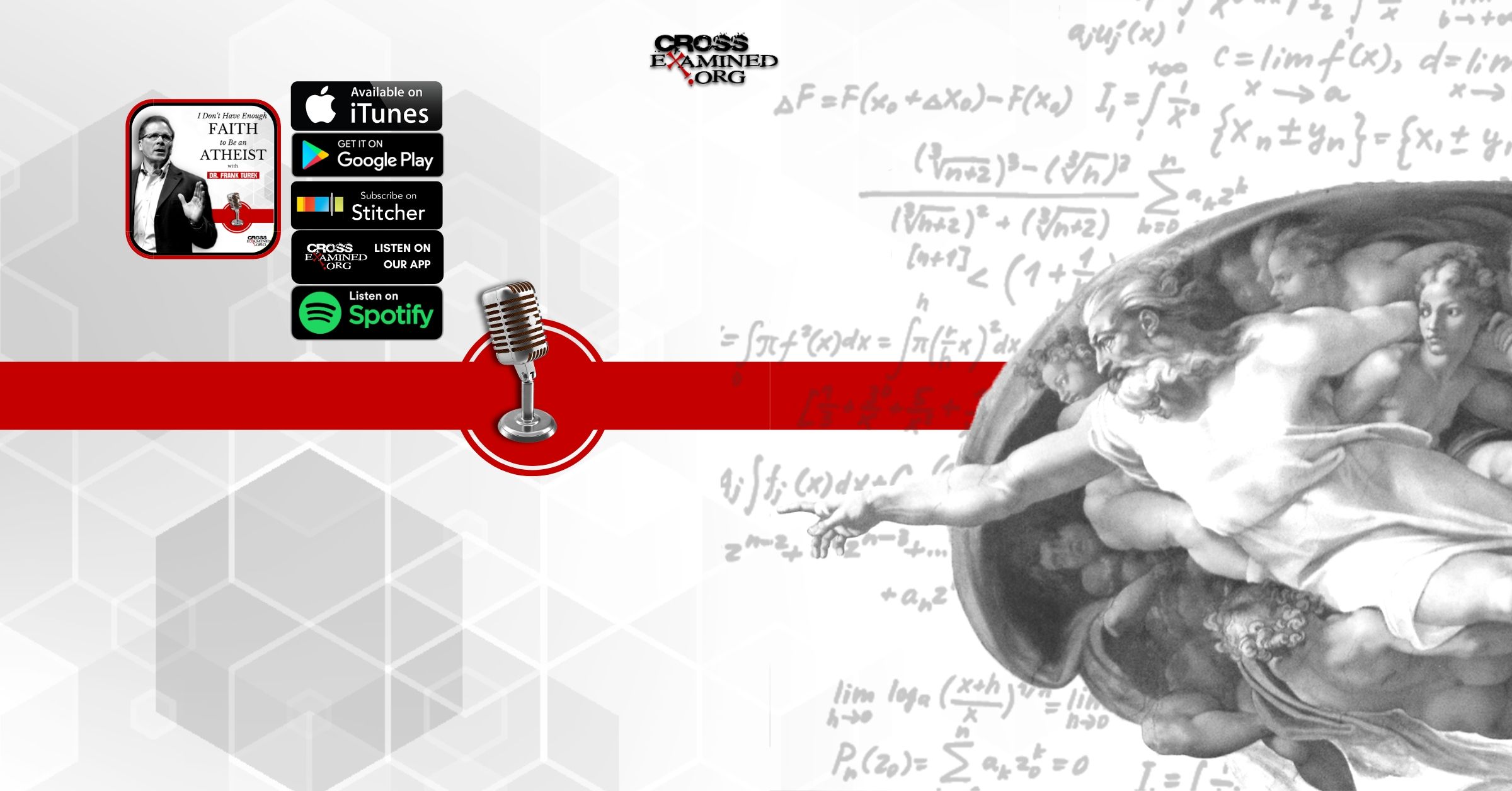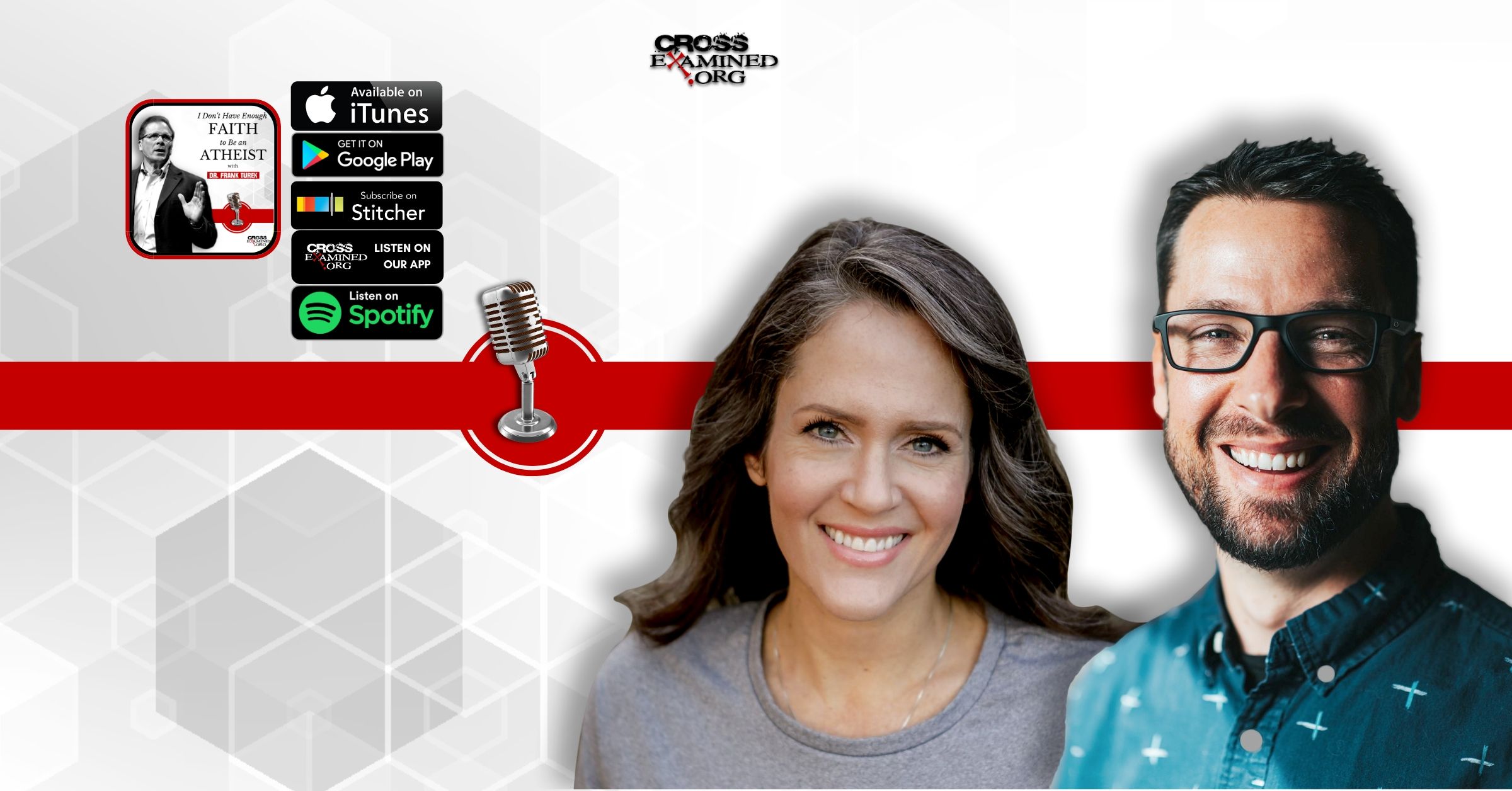Jorge Gil: Next Gen Apologist to the World
Jorge Gil was born in 1982 to a single mother in Costa Rica. When he was one year old, she left him in the care of his grandparents and moved to the United States, where she died ten years later. In the wake of her death, with a grandfather who was away most of the time, a grandmother who showed love by giving him whatever he wanted, and adolescence approaching, young Jorge started exploring. With no father figure and no boundaries, he soon discovered he liked liquor and pot, and both became regular pastimes. As in much of Latin America, the culture around him was nominally Catholic, and he could easily party all night and go to Mass the next day, no qualms. He never doubted the existence of God. He just never cared about him.
Still, he was a smart student. He graduated high school at sixteen, and by age eighteen had completed three semesters of college. However, with expanded freedom had come expanded carousing. When the aunts footing the bill for his education saw how he was wasting the opportunity, they cut off the funds. At that point, his Aunt Shirley invited him to America, where she lived, and where he could work and earn his own funds to finish school. He arrived in North Carolina two weeks after the September 11 terrorist attacks.
But a change of setting does not a change of lifestyle make. A steady income of his own simply freed him up to do whatever he pleased, and life settled into a steady cycle of hard work followed by hard-partying. Who needed school?
Being musically and technologically inclined, he also built a recording studio in his apartment. This attracted friends, including women, and before long, he’d taken up with one in particular. Neither of them had any plan or ambition for life, and they drifted along carelessly and recklessly before and after children entered the picture. Jorge’s daughter Leda was born in 2007, followed by his son Aiden in 2008. With both Jorge and his baby-mama stuck in codependency, Aunt Shirley next door picked up a lot of the slack for everyone.
Stopped
In 2012, several years of irresponsible living caught up with Jorge. It started with a routine traffic stop while he was driving home from a friend’s house. Although he’d had some drinks, his breathalyzer test registered under the legal limit, so that wasn’t a problem. But his driver’s license was expired. So he was taken to the police station, where, by some mysterious misfortune, a second breathalyzer test showed a blood alcohol concentration of 0.1% over the limit. Jorge was detained overnight in the Sampson County jail, and now he had a DUI charge to contend with.
The next morning, he woke up to an ICE officer waiting for him. The reason his driver’s license was expired was that he’d let his immigration permit lapse, and now he was being placed on immigration hold. Driving with an expired license was a minor offense, and the DUI arguably stood on shaky ground. But this immigration situation was a more complicated matter. In counsel with his lawyers, Jorge decided he would plead not guilty to the DUI charge and remain in the county jail while they prepared his immigration case.
Detention: Part One
“Do you have anything to read?” he asked his Mexican bunkmate on the first day in jail. His bunkmate had two books, a Colombian classic called One Hundred Years of Solitude and a Bible. Jorge had no interest in reading the Bible, but after finishing the novel in two days, the Bible was the only book around, and prison days were long. He read the Gospels.
To his surprise, he found himself intrigued. As if in response to some nascent prayer, the following week, a black man named Cortez was transferred into his pod. (A pod is a large communal cell.) Cortez had what he called “jail preacher syndrome,” meaning that he would drift in and out of jail and while in jail he would preach the gospel and teach Bible studies. Jorge took it all in, and when another preacher visited two weeks later and laid out the gospel with all his country-preacher fire, Jorge surrendered his life to Jesus on the spot. At that moment, all the urges and desires of his old life—a pack or two of cigarettes a day, drinks every night, and pot here and there for good measure—up and left, never to return.
Cortez went to work discipling him right away. He told Jorge to stop using profanity, both the Spanish words and the English ones. Jorge did, and the two studied the Bible together every day until Cortez was transferred out a few weeks later. With Cortez gone, Jorge took it upon himself to become the new in loco preacher. Still new to the Bible himself, he used whatever he could find. He asked Aunt Shirley to get him some resources, and though he hardly knew what to ask for, he soon had a study Bible, some Our Daily Bread devotionals, a few InTouch magazines, and a stash of commentaries, all of which he devoured and disseminated as best he could like there was no tomorrow. He reached out to contacts in the community and asked for Bibles to be donated, and soon every new inmate received from him a good welcome and his own Bible. Inmates started calling him Preacher and coming to him for counsel, and between the providence of God and the flame driving his regenerated heart, Jorge grew into the preacher-teacher role with a passion.
Detention: Part Two
Six months to the day after Jorge entered the Sampson County jail, he was transferred to a federal ICE detention facility in Georgia. The DUI charge had been dismissed, and by the time he left, in addition to becoming Preacher, he’d become friends with all the guards, served as their on-call translator, read some sixty books, and accumulated a pile of yellow pads filled with notes, ideas, and sermon outlines.
Although he’d pretty much put himself through “preacher school,” as he now puts it, the ICE facility presented a whole new set of challenges. These weren’t people who were in for crimes per se, but like him were being detained and processed for either deportation or reinstatement as a resident. In North Carolina, most of the inmates had come from some kind of Christianized background and had a reasonable context by which to relate to the gospel. Here, he encountered Buddhism, Islam, Rasta, Hinduism, Bahá’í, and other world belief systems. He would start preaching or talking as he’d done before, and men would challenge him with questions he’d never encountered: “How can you say Jesus is the only way?” and “Hasn’t the Bible been corrupted?” and the like. How was he to respond to these?
He prayed, and his answer came in the form of an AM-FM radio a Mexican man who was being deported gave him. By holding the antenna up to the window just so, Jorge found a radio teacher who flat-out blew him away. The man had a funny accent, and Jorge thought he was some kind of Messianic Jew because his name was Ravi, which he assumed was a mispronunciation of Rabbi. Jorge sat by that window every single day, wrote down everything this man said and asked Aunt Shirley to send him every book she could find related to Ravi Zacharias.
The books and notepads continued to accumulate until November when Jorge received a full pardon and was released. He returned home 110 pounds lighter, nine months drug-free, insatiably thirsty for knowledge of this Jesus he loved, and with a heart set on sharing him with the world. He started looking for apologetics programs online as soon as he could get his hands on a smartphone.
El Director
Life since that pivotal year has brought a lot of twists and turns. His employer had held his job for him, and he was welcomed back wholeheartedly, but his relationship with the mother of his children deteriorated rapidly. Not only had she not changed, she was not happy about these changes in him. She left a few months later in a violent fury, never to return.
His Aunt Shirley, who had been like a mother to him all these years, died in 2014 in a horrible murder-suicide shooting, and following that, he discovered in a new way the richness of the body of Christ, as his small rural church stepped in to help him with his kids. He went to every weekend apologetics conference he could find within driving distance, and he sought out mentors who could help him grow as an apologist and man of God. He met Frank Turek of Cross-Examined and in 2015 was hired on as Cross-Examined’s social media director. He also met Angelia (“Lia”) in 2015, and in 2017, she became his wife and accepted the mantle of mother to his children.
Today, he serves as the Executive Director for Cross-Examined. He oversees all projects, including the translation and publication of apologetics resources into world languages, including Chinese and Russian. He oversees Cross-Examined’s social media operations and, techno-whiz Millennial that he is, keeps them ever on the leading edges of technologies, in order to reach younger generations on their grounds and terms.
He speaks and conducts seminars overseas on a wide range of topics—postmodernism, same-sex marriage, the problem of evil—contextualizing the content as much as possible for local audiences, and he creates and hosts online communities, the goal always being to advance the gospel and deliver sound apologetics to the world.
Hombre de Dios
He’s one busy hombre who loves what he does. “I certainly didn’t plan this,” he says. “God gave me this opportunity, and it’s a joy to be able to allow him to use me to connect the North American movement in apologetics and actually create one in Latin America.”
He finds his greatest joy, though, in his family.
To see that family unity that I never had—I never met my biological father, I was raised by my grandmother, my biological mom died (I barely knew her), and my grandfather who was supposed to be the role model in the house was always gone working, and when he came around he was drunk—to see the relationships I have with my children and with my wife, and that my children have with her is incredible. I think that’s the thing I enjoy the most.
Scripture speaks about God calling his people, establishing them, and then making them flourish. I think Jorge Gil is just getting started at that flourishing part.
Out of the Trenches
How Jorge Gil Grew into His Calling
“One of the things people don’t know about me,” Jorge says, “is my struggle with not having a degree.”
He was in a business meeting of the Evangelical Philosophical Society one day, when the president, Angus Menuge, asked him what his area of expertise was. “Bro,” he said, “I’m riding on a high-school diploma.”
In addition to multi degreed Christian academics like Dr. Menuge, Jorge’s circle of colleagues includes such apologetics giants as J. Warner Wallace, Greg Koukl, and the late Dr. Norman Geisler, so it’s understandable if he feels intimidated at times. But the way he’s going about his Christian life is hardly “riding.” Consider the following:
Diligence: For one thing, ever since his Christian conversion seven years ago, Jorge has invested himself in learning everything he can that’s related to the Christian faith. Although he was not deported in 2012, his temporary residential status meant he would have to enroll in school as a foreign student, which carried a much higher tuition cost.
As a single parent, formal education was simply not an option for him for some time. So Jorge studied on his own -theology, apologetics, philosophy-whatever would make him a more suitable vessel for sharing the gospel.
Humility: Second, having never had a father figure to speak of, he intentionally sought out learned, godly men for help and advice. He met Richard Howe, who was director of the Ph.D. program in philosophy at Southern Evangelical Seminary, at an apologetics conference and asked Dr. Howe if he would be his philosophy mentor. He built relationships with people he saw as role models, not because of their “star status,” but in order to learn from them. One of the many questions he would ask is, “What would you tell your thirty-year-old self that you would want him to know?” He also offered his services as a translator to them-to subtitle their videos, for example, or to re-post their biogs in Spanish. No charge; it was all about offering what he had to give in service to the cause.
Faith: And third, Jorge never let intimidation or lack of a degree hinder him from doing what he believed God was calling him to do. He’s currently pursuing his Associate, Bachelor, and Masters degrees, all in one swoop. At the same time, he insists it’s not the degrees or the seminary that prepares you for the work, but the God who calls you to it.
“If you want it and you think God has called you to something,” he tells people,
then go for it, and things will fall into place. Don’t think, “I’ll get my degree and then I’ll do apologetics.” No, get into the trenches. If you have to get your degree while you’re in the trenches, do it. But don’t be intimidated by all of these people who have big letters in front of or behind their names. Remember, God just grabbed a handful of fishermen and turned the world upside down. I think he’s still operating the same way today.
Indeed. I think the rest of us can learn from Jorge’s example. The Christian life is never about what we have or don’t have. It’s about the God we know and what we do with what we have. By those lights, Jorge “graduated” a long time ago.
Recommended resources related to the topic:
Tactics: A Game Plan for Discussing Your Christian Convictions by Greg Koukl (Book)
Practical Apologetics in Worldview Training by Hank Hanegraaff (Mp3)
The Great Apologetics Adventure by Lee Strobel (Mp3)
Defending the Faith on Campus by Frank Turek (DVD Set, mp4 Download set and Complete Package)
So the Next Generation will Know by J. Warner Wallace (Book and Participant’s Guide)
Reaching Atheists for Christ by Greg Koukl (Mp3)
Living Loud: Defending Your Faith by Norman Geisler (Book)
Fearless Faith by Mike Adams, Frank Turek and J. Warner Wallace (Complete DVD Series)
Terrell Clemmons has a BS in Computer Science and worked as a software engineer with IBM until she hopped off the career track to be a full-time mom. She lives in Indianapolis, IN, and writes on apologetics and matters of faith.
This article was originally published at salvomag.com: http://bit.ly/2HndWQI














